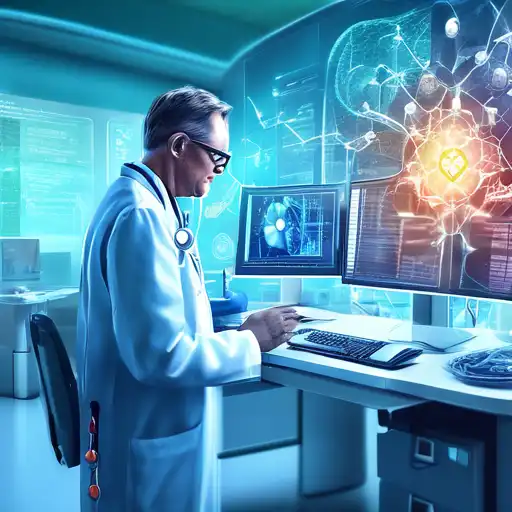The Revolutionary Impact of Data Science on Modern Healthcare
In the rapidly evolving world of healthcare, data science has emerged as a transformative force. By harnessing the power of big data, machine learning, and predictive analytics, healthcare providers are now able to offer more personalized, efficient, and effective care than ever before. This article explores the myriad ways in which data science is reshaping the healthcare landscape.
Personalized Medicine
One of the most significant contributions of data science to healthcare is the advent of personalized medicine. By analyzing vast datasets of patient information, including genetic data, healthcare professionals can now tailor treatments to the individual characteristics of each patient. This approach not only improves outcomes but also minimizes the risk of adverse reactions.
Predictive Analytics in Patient Care
Predictive analytics, a cornerstone of data science, is revolutionizing patient care. By identifying patterns in historical and real-time data, healthcare providers can predict outbreaks, anticipate patient admissions, and even foresee potential health crises before they occur. This proactive approach saves lives and reduces healthcare costs.
Enhancing Drug Development
Data science is also streamlining the drug development process. Through the analysis of complex biochemical data, researchers can identify promising drug candidates more quickly and accurately. This not only accelerates the time to market for new treatments but also reduces the cost and failure rate of clinical trials.
Improving Healthcare Operations
Beyond patient care, data science is optimizing healthcare operations. From managing hospital resources to predicting patient flow, data-driven insights are helping healthcare facilities operate more efficiently. This leads to shorter wait times, better resource allocation, and improved patient satisfaction.
Challenges and Ethical Considerations
Despite its benefits, the integration of data science into healthcare is not without challenges. Issues such as data privacy, security, and ethical use of patient information must be carefully navigated. However, with robust frameworks and regulations, the potential of data science to transform healthcare is limitless.
In conclusion, data science is playing a pivotal role in the evolution of healthcare. From personalized medicine to operational efficiency, the possibilities are vast. As technology continues to advance, the synergy between data science and healthcare will undoubtedly lead to even more groundbreaking innovations.
For more insights into how technology is shaping the future of healthcare, explore our articles on medical technology and big data in healthcare.
